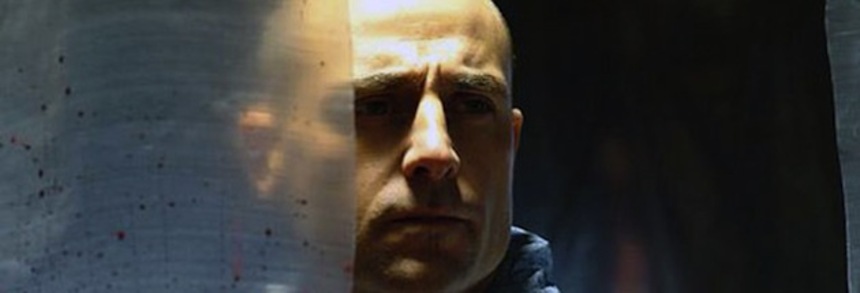Sitges 2013 Review: MINDSCAPE Is An Intriguing Twist On The Classic Thriller

Strong plays John, a 'memory detective', who can enter people's minds to help them recall details to solve crimes or investigate trauma. His own personal trauma, though, has meant a leave of absence, and he is brought back only to solve what seems to be a minor case. Anna (Farmiga), the daughter of wealthy parents, has gone on a hunger strike, and while John enters her mind to find out why, disparate memories overlap, and it's possible than Anna is not as innocent as she seems.
The film sets its dark mood right out of the gate, with John inside the memory of a woman who was attacked; Dorado keeps a straight view on both the woman and John as he 'watches', and yet at the same time, Dorado conveys the sense of abstraction and dreamstate by conveying an impression of surreality. The camera mainly keeps close in on these various rooms of the mind, often switching from one frame to the next to keep the audience within the mood of the shifts in the mind. He then keeps that sense of surreality during the film, and he does it in such a way that you can't quite put your finger on what is wrong. He slowly builds up the tension in the first hour through John's subjective perspective, as he uncover more clues to complicate the situation. It moves, then, from classic thriller to puzzle film, and the scenes inside Anna's memories have a certain cold calculation that give the viewer a chance to play detective, while at the same time give a few chills down the spine.
Strong is always true to his name, and his slight yet towering frame conveys a terribly damaged man who nonetheless finds some strength to protect Anna. Recently, myself and others have been crying out for better female characters, ones who are more complex and three dimensional. So big thanks to screenwiters Guy Holmes and Martha Holmes for creating such a character in Anna, and even bigger thanks to Farmiga for playing her. Farmiga's Anna is assured and forward, never playing any stereotypical weakness too often seen in teenage girl characters. Farmiga walks the fine line between trauma victim and sociopath with perfect mystery, and there is great chemistry between her and Strong (I'd argue that the best scenes in the film are with just the two of them).
The film does begin to lose momentum in the last half hour; at this point, the audience has likely figured out some of the main plot twists, and has to wait for John to catch up. As well, the exposition scenes are too long and a bit pedantic; Dorado does such a good job of conveying information through a few shots, a few brief lines, and catching Strong's facial expressions, that these scenes (or at least, a lot of the dialogue in them) are unnecessary.
This is a impressive first feature, one that plays with the cinematic language of the thriller, including the damaged detective, the woman in peril, and the possible villain in sheeps clothing, and at the same time adds more to the mix that keeps the audience guessing through its surreality, both in narrative and form. It's a complicated premise, and Dorado keeps that complication interesting.

Do you feel this content is inappropriate or infringes upon your rights? Click here to report it, or see our DMCA policy.






